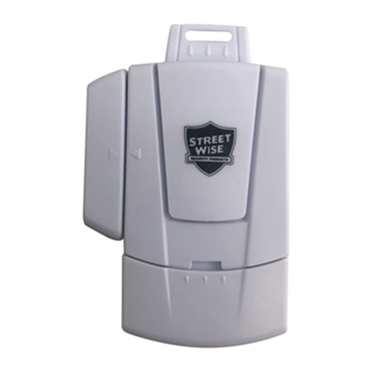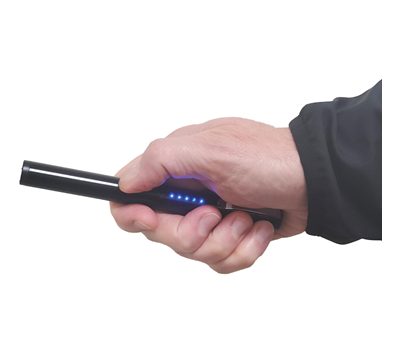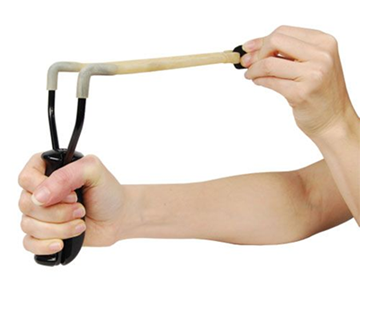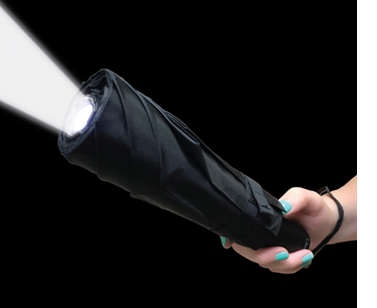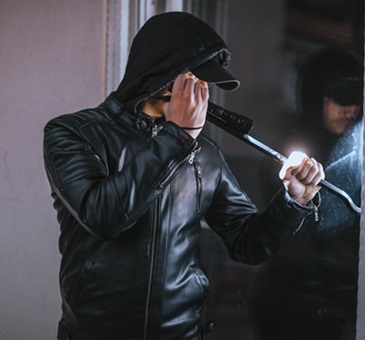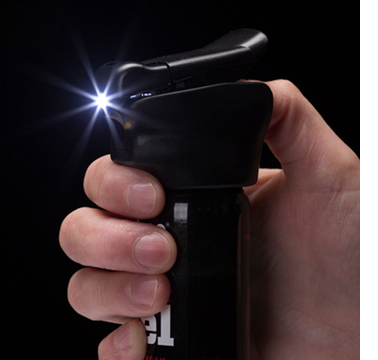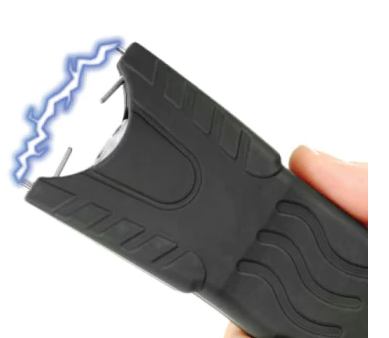Michigan Stun Gun and TASER Laws
 Michigan's stun gun and TASER laws are some of the strictest in the country. While stun guns and TASERs are legal to possess in Michigan, the state has several laws and regulations governing their possession and use. In this blog post, we will explore Michigan's stun gun and TASER laws and what you need to know if you plan to use these weapons for self-defense.
Michigan's stun gun and TASER laws are some of the strictest in the country. While stun guns and TASERs are legal to possess in Michigan, the state has several laws and regulations governing their possession and use. In this blog post, we will explore Michigan's stun gun and TASER laws and what you need to know if you plan to use these weapons for self-defense.
Stun Gun Laws in Michigan
Under Michigan law, stun guns are defined as "portable devices or instruments that are designed or intended to be used to immobilize or incapacitate a person by the discharge of electrical current." While possession of a stun gun is legal in Michigan, there are several restrictions on their use.
First and foremost, you must be 18 years of age or older to possess a stun gun in Michigan. Additionally, if you have been convicted of a felony or any assaultive crime, you are prohibited from possessing a stun gun. It is also illegal to possess a stun gun if you have been deemed mentally incompetent by a court.
There are also restrictions on where you can carry a stun gun in Michigan. You are prohibited from carrying a stun gun in a school or on school property, in a courtroom or courthouse, in a police station, or in any other building or property owned or operated by the government. It is also illegal to carry a stun gun with the intent to use it unlawfully against another person or to commit a crime.
If you are caught violating any of these laws, you could face significant fines and even jail time. For example, possession of a stun gun by a person convicted of a felony or an assaultive crime is punishable by up to five years in prison and a fine of up to $2,500.
TASER Laws in Michigan
TASERs are classified under Michigan law as "portable devices or instruments that are designed or intended to be used to propel a dart or other similar object carrying an electrical current." Like stun guns, possession of a TASER is legal in Michigan, but there are several restrictions on their use.
You must be 18 years of age or older to possess a TASER in Michigan. Additionally, if you have been convicted of a felony or any assaultive crime, you are prohibited from possessing a TASER. It is also illegal to possess a TASER if you have been deemed mentally incompetent by a court.
There are also restrictions on where you can carry a TASER in Michigan. You are prohibited from carrying a TASER in a school or on school property, in a courtroom or courthouse, in a police station, or in any other building or property owned or operated by the government. It is also illegal to carry a TASER with the intent to use it unlawfully against another person or to commit a crime.
One significant difference between stun guns and TASERs in Michigan is that you must have a concealed pistol license (CPL) to carry a TASER. This is because Michigan law considers TASERs to be firearms, and the CPL is the only license that allows you to carry a firearm in Michigan. If you are caught carrying a TASER without a CPL, you could face significant fines and even jail time.
Penalties for Violating Stun Gun and TASER Laws in Michigan
If you are caught violating Michigan's stun gun and TASER laws, you could face significant penalties. The penalties vary depending on the specific offense, but they can include fines, jail time, and even prison time.
For example, possession of a stun gun by a person convicted of a felony or an assaultive crime is punishable by up to five years in prison and a fine of up to $2,500. Possession of a TASER by a person convicted of a felony or an assaultive crime is punishable by up to five years in prison and a fine of up to $5,000. Carrying a TASER without a CPL is a misdemeanor offense punishable by up to 90 days in jail and a fine of up to $500.
It is also worth noting that if you use a stun gun or TASER to commit a crime, you could face significant penalties. For example, using a stun gun or TASER to commit a felony is punishable by up to 10 years in prison and a fine of up to $10,000. Using a stun gun or TASER to commit a misdemeanor is punishable by up to two years in prison and a fine of up to $2,000.
Using a stun gun or TASER in self-defense is generally legal in Michigan, but there are certain restrictions on their use. For example, you are only allowed to use a stun gun or TASER if you reasonably believe that it is necessary to defend yourself against an imminent threat of unlawful force. You are not allowed to use a stun gun or TASER to commit a crime or to use excessive force.
Conclusion
Michigan's stun gun and TASER laws are strict, but they are in place to protect public safety. While stun guns and TASERs can be effective tools for self-defense, it is important to understand the laws and regulations surrounding their possession and use in Michigan. By doing so, you can ensure that you are using these weapons responsibly and legally to protect yourself and your loved ones.
If you are considering purchasing a stun gun or TASER in Michigan, be sure to do your research and purchase from a reputable dealer. Make sure you understand the laws and regulations surrounding these weapons and seek out proper training before using them for self-defense. It is also important to remember that stun guns and TASERs are not without risks and can cause serious injury or even death if used improperly or in certain circumstances.
In summary, while Michigan's stun gun and TASER laws may seem strict, they are in place to protect public safety and ensure that these weapons are used responsibly. If you plan to use a stun gun or TASER for self-defense, make sure you understand the laws and regulations surrounding their possession and use in Michigan and seek out proper training to use these weapons responsibly.
See cost of Stun Guns and TASERS
Disclaimer: The information provided in this blog post is for general informational purposes only and should not be construed as legal advice. The laws and regulations regarding stun guns, TASER devices, and other electronic defense weapons can vary widely by jurisdiction and can change over time. Therefore, it's important to consult with legal professionals or relevant authorities to obtain accurate and up-to-date information that applies to your specific circumstances.
